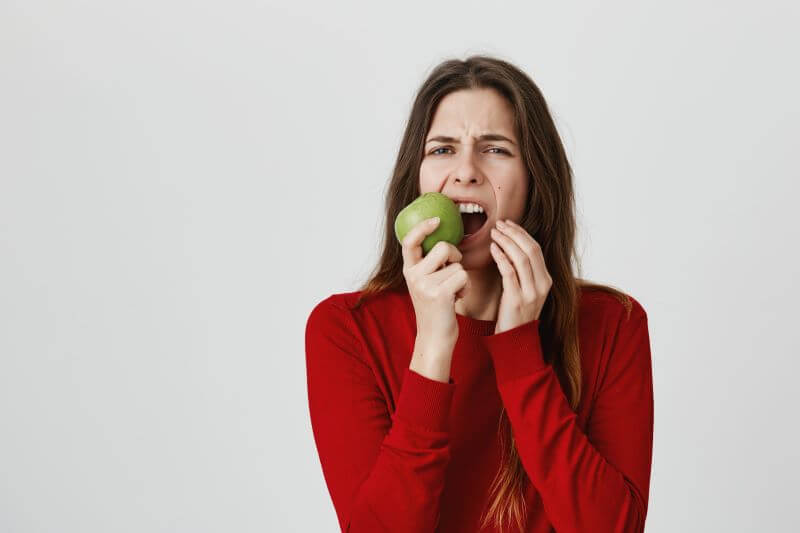You take a bite of juicy pineapple, but just seconds later, a prickling sensation fills your mouth. This experience isn’t merely a trivial reaction; it’s a complex physiological phenomenon. Several factors can contribute to it, such as the fruit’s acidity, the digestive enzymes it possesses, and the specific characteristics of our own bodies. Here’s an exploration of the topic.
Did you know that some individuals may experience a prickling or even a mild burning sensation after eating certain fruits? While it might seem unusual, this is a common reaction when some fruits make contact with our taste buds.
This phenomenon is not solely about flavor or texture, but rather the result of a complex interplay of acids, enzymes, and specific biological reactions.
The Instigators of Tingling: What Your Favorite Fruits Hide
Why Are Some Fruits More Aggressive in the Mouth?
Many fruits, especially citrus varieties (like oranges, lemons, and grapefruits), along with apples, contain organic acids such as citric, malic, and tartaric acids. These acids are responsible for the characteristic tanginess of these fruits and can cause temporary irritation of the taste buds.
This irritation leads to a tingling sensation, which may vary in intensity depending on the fruit’s acid content and the person’s sensitivity.
Citrus fruits are particularly well-known for their ability to stimulate the taste receptors sensitive to acidity. For instance, citric acid found in lemons can create a slight burning feeling in the mouth, especially when consumed in large amounts or if the mucous membranes are already sensitive.
When Fruits “Eat” You: The Role of Enzymes
Some fruits contain enzymes that, when interacting with the proteins in the mouth, can lead to tingling or irritation sensations.
Bromelain in pineapples and papain in papayas are classic examples. These enzymes are proteins that assist in breaking down other proteins. When ingested, they can degrade proteins in the mouth, particularly those present in the oral mucosa.
This leads to a tingling feeling or even irritation of the tongue and gums. This reaction can be more pronounced if the fruits are consumed before achieving full ripeness, as the enzyme concentration is typically higher at that stage.
Tannins and Anthocyanins: Intense Flavor and Irritation
Tannins, found in fruits like grapes, pomegranates, and blackberries, are phenolic compounds. Besides having antioxidant properties, they give these fruits astringent flavors.
This flavor often creates a dry sensation in the mouth and can also elicit a tingling feeling.
Anthocyanins are pigments present in fruits like blueberries, raspberries, and cherries. These compounds are responsible for the bright colors of these fruits. Similar to tannins, they can cause slight irritation by interacting with the mouth’s receptors.
What Your Mouth Truly Feels: The Mechanisms Behind Tingling
When Fruits Excite Your Nerve Receptors
The nerve receptors in the mouth play a crucial role in the perception of taste sensations, including pain and irritation. When we consume fruits rich in acids or enzymes, these substances interact with sensitive nerve fibers, stimulating these receptors.
This can lead to a tingling or even a burning sensation, depending on the nature and concentration of the compounds within the fruit.
The nerve fibers react to chemical irritants in the mouth, often causing the mild pain experienced when consuming acidic fruits or those containing active enzymes.
This phenomenon may explain why some individuals feel more intense sensations than others.
Why Do Some Experience Tingling More Than Others?
It’s essential to recognize that individual reactions can vary. Some individuals have more sensitive taste buds, which can amplify the perception of tingling sensations.
Moreover, the composition of oral flora, the pH of saliva, and other personal physiological factors also influence this response. Thus, a fruit that causes tingling in one person may not elicit the same reaction in another.
Tingling or Allergy?
In some cases, the tingling sensation isn’t merely benign irritation but rather an allergic reaction. Certain individuals are more sensitive to specific fruits due to their immune systems.
Allergic symptoms may include intense tingling, itching, swelling of the lips or tongue, and, in some cases, difficulty breathing. If you experience similar symptoms, it is vital to consult a medical professional to evaluate the source of the reaction.
How to Reduce or Avoid This Tingling?
Which Fruits to Choose to Avoid Irritation?
If you are sensitive to acidic fruits, it may be beneficial to opt for less acidic options. For instance, peaches, pears, bananas, or mangoes are milder and less irritating fruits. These fruits not only provide a more pleasant experience for the taste buds but are also generally easier to digest.
Allow Fruits to Ripen
Letting fruits like pineapples or papayas ripen before consumption can decrease their enzyme concentration, thus lessening their irritating effects. As fruits ripen, their bromelain or papain levels decrease, making them less likely to cause tingling sensations.
Tips to Neutralize Acidity
In certain scenarios, treatments can be applied to reduce the acidity and enzymes responsible for the tingling.
For instance, soaking acidic fruits in a saline solution for a few minutes can help lessen their acid content. Peeling specific fruits such as pineapples or papayas can also lower enzyme concentrations, as these are often concentrated in the skin or the outer layer of the fruit.
The tingling sensation experienced in the mouth when eating certain fruits is common, yet it varies among individuals. While it is primarily caused by acidity, enzymes, and other compounds present in these fruits, the reaction can also be influenced by individual sensitivity or allergic responses.
Experiment with different fruits, their ripeness, or their preparation methods to observe how your mouth reacts.
IMPORTANT TO NOTE
Individuals allergic to latex may also react to certain fruits like bananas, avocados, chestnuts, or kiwis. This phenomenon, known as cross-reactivity, occurs due to the similarity between certain proteins in latex and those in these fruits.







